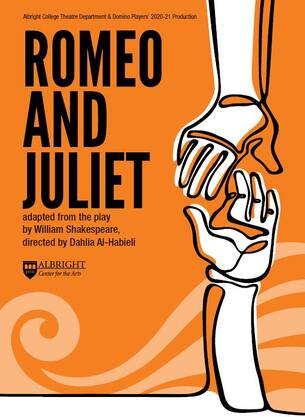|
Student collaborators: Lauren Farrell ‘22, Makenzie Mettler ‘22, Libni Rivera ‘24, Katsuto Sakogashira ‘21, Austin Shapiro ‘22, Andrew Svarczkopf ‘21, Aly Tu, Kyle Zayas ‘23
We opened the session up with a recap of what we discussed at last week’s Listening Party, and our new folks shared their impressions of Act 1 so we could all begin Act 2 together. We considered the relationship between Benvolio and Romeo last week. This week we looked back on the interactions between Mercutio, Romeo, and Benvolio both in Act 1 and Act 2. The students were struck by the wildly different attitudes of the three boys towards the opposite sex, and by Mercutio’s dizzying rhetoric and the verbal sparring between the three young men. Aly wondered if Mercutio’s tempestuousness might indicate that he is younger than the more level-headed Benvolio, while Austin took Mercutio’s confidence as evidence that he is the oldest of the trio. Mercutio is a captivating yet enigmatic character whose fatal showdown with Tybalt “becomes the tipping point that turns this tale of two star-crossed lovers from a romantic comedy to a tragedy.” Act 2 is still, however, very much in the realm of romantic comedy in the famous balcony scene. The students pointed out several indications of both Romeo’s naivete and Juliet’s youth: Romeo’s proposed solution to the problem presented by his family name is to change it, and Juliet does not have the “cunning” to play coy or be anything but completely honest. Sako pointed to Juliet’s confessed blushing as particularly charming and evocative. While the guileless passion of the young lovers is alternately charming, funny, and worrying, we noted how Romeo’s language for Juliet differs dramatically from how he describes Rosaline earlier in the play. We go on to learn in Act 2, Scene 3 that Friar Laurence is the only person in the play who Romeo has previously told about his feelings for Rosaline. Although he visits the Friar because he needs a clergyman to marry him and Juliet, Romeo also seems to confide in Friar Laurence more than with his young friends or family. Why doesn’t Romeo tell either Benvolio or Mercutio about his pending marriage in the following scene? What might this omission tell us? Furthermore, why do the Nurse and Friar Laurence agree to help the two adolescents marry in secret? While the Friar says he hopes the union will put the Montague-Capulet feud to rest, and the Nurse is keen to save Juliet from a marriage to Paris, neither adults acknowledge the possible fallout of the union. Libni was particularly struck by the Nurse readily agreeing to prepare a rope ladder for Romeo to be able to sneak into the Capulet home and consummate his marriage to Juliet; that is also quite some foresight and planning on Romeo’s part! The students were tickled by Juliet’s childish impatience with the Nurse in Scene 4, but were divided on whether the Nurse is purposefully teasing Juliet or truly heedless of the urgency. We discussed how the choice we make between these two interpretations is surprisingly impactful, because our perceptions of Juliet and Romeo are deeply informed by the characterization of the two adults who are their closest confidantes. The students largely found the young lovers’ behavior foolish. Many of them first encountered the play as adolescents and feel much less inclined to buy into the concept of “love at first sight” now as young adults. Sako, however, countered that our contemporary, interconnected world is very different to the world that Juliet and Romeo encounter each other in. How many young men has Juliet ever interacted with prior to Romeo? What is behind Romeo’s declaration that "(it) is enough that I may call her mine"? Perhaps, Aly went on to muse, Romeo is looking for a sense of family, of belonging, as much as he is looking for a lover.
0 Comments
Leave a Reply. |
April 2021
Albright College Theatre |

 RSS Feed
RSS Feed